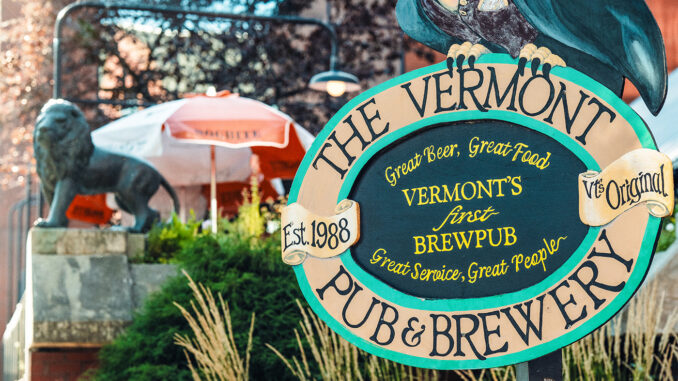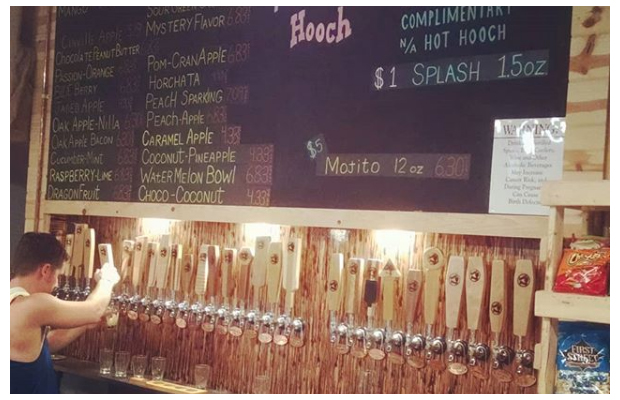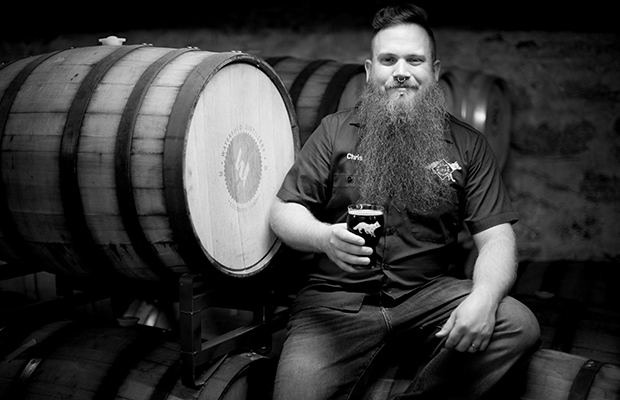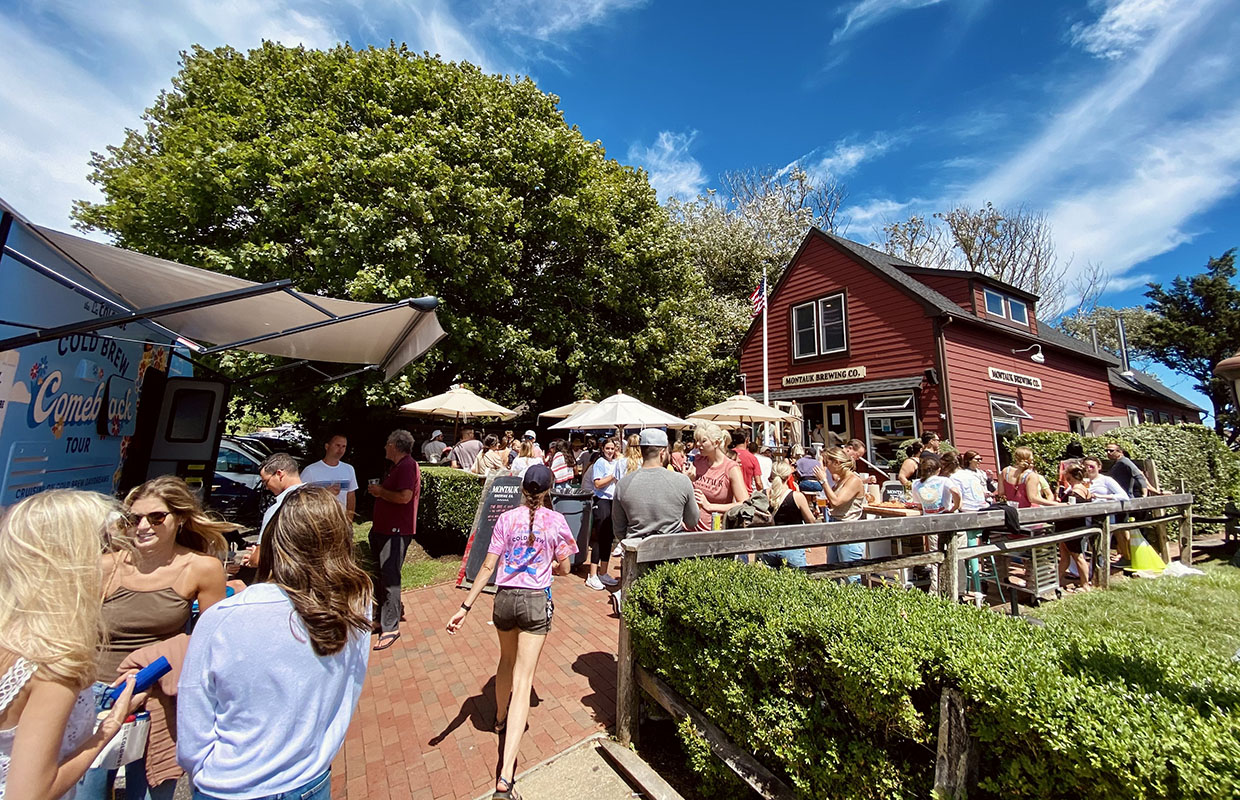
This is a continuing series highlighting the oldest craft brewery in each state with members of the organization that helped build the brand. Brewer Magazine will share business and personal insights each Monday to help learn how these veterans of the industry have grown.
In the mid 1980s, Greg Noonan had recently completed his book, “Brewing Lager Beer.” Fellow founding partner, Steve Polewacyk, shared with Brewer recently that Noonan wanted to enter the world of professional brewing, “and to open a brewpub to bring quality beer to the masses.”
Almost two years of searching for a location took him through Massachusetts, New Hampshire and ultimately, Vermont.
“In the end, Burlington was the perfect venue for his vision,” Polewacyk said about the opening of the first brewpub in the state.
The biggest struggle during the first year of opening The Vermont Pub & Brewery was educating the customers as to just what exactly craft beer was and how it differed from the mass-produced beer offered by the large breweries, he said.
“In 1988, craft beer was still a new concept,” Polewacyk added.
Noonan passed away in 2009 and current General Manager Elise Pecor — who was hired by Noonan in 2007 — bought out Polewacyk in 2019 while brewer, Scott Gawitt, also bought into the corporation in 2022.
Elise Pecor, General Manager, & Scott Gawitt, Brewer, The Vermont Pub & Brewery — Burlington, Vermont
Date the brewery opened: November, 11, 1988
What beers were tapped on opening day? Pilot Ale, a low-alcohol beer to dedicate our commitment to responsible consumption of malt beverages; Pesky Sarpent, an unfiltered Lager; and Burly Irish Ale, a session Irish-style Red Ale, which is still on tap today. We also had a guest tap featuring Catamount Brewing Company Porter. Catamount was the first brewery to open in Vermont after prohibition.

BREWER: Go ahead, pat yourself on the back; what was one of the key “good ideas” that were had early on which help drive growth or sustainability to the brewery?
PECOR: VPB has been featuring local ingredients in our beer and food offerings, supporting our local producers since the early days, before ‘farm to table’ was trendy. By featuring local ingredients we keep our money circulating in our local economy and we get to use the freshest ingredients that don’t have to travel far to get to us. This is just one of many concepts that demonstrate Greg’s forward thinking.
BREWER: OK, now admit a defeat; what was a decision or a circumstance that hurt the brewery? How did you solve that issue or find your way through it?
PECOR: Not a decision, but a circumstance — losing our founder, Greg, in 2009 was probably the biggest blow that VPB has ever experienced. Greg was a genius, the visionary behind the Brewpub, and his shoes are impossible to fill. Greg’s partner, Steve Polewacyk, was “the caretaker to his legacy” for many years, and now Scott and I do our best to hold true to Greg’s vision, while adapting to changing times. When facing challenges I often think “What would Greg do?” It’s quite inspirational to think of everything that Greg accomplished, and at the same time remember the basics: great beer, great food, great service, great people — that’s what it’s all about.
BREWER: What has been your brewery’s most recent accomplishment and how is it going to improve your business going forward?
PECOR: Quite frankly, making it through the COVID era with minimal upset to our business model. I became an owner in December 2019, right before the shutdown, and wow, that was a wild ride! Luckily, VPB is a longstanding business, and we were in a stable place when the shutdown happened. We implemented several changes to our service model that have resulted in a streamlined, more efficient way to give excellent service to our patrons. So many things that happened out of necessity ended up working out as permanent solution to problems we didn’t know existed. The pandemic also gave me a real crash course in understanding tax codes and labor laws. I figure, if we made it through that we can make it through anything!
BREWER: What are some adaptations to business practices in the industry that you’ve observed over these past few years, and how has your brewery adjusted to stay competitive?
PECOR: The labor market has really shifted in the last few years, and we’ve had to implement some creative problem solving to retain staff and fill positions. In addition to increasing wages we have also added a ‘Kitchen Appreciation’ service charge to food items. The additional charge gets distributed to kitchen staff based on the days and hours that they work, so they get additional compensation directly related to how busy we are, much like how tipped staff makes more money on busier shifts. We also offer a referral bonus when we need to hire people, so when staff members refer someone to apply they get a bonus if the new hire works out — we’ve hired a lot of really great people through the referral bonus model! We take great pride in our staff; they are the heart and soul of VPB.
BREWER: Be it in styles, ingredients, business strategies or sales & marketing techniques, what are some recent industry trends that you’ve tried or are excited about trying this year?
GAWITT: We’ve recently participated in a number of charity brews to give back to our community. We plan on continuing the practice of donation brewing — it feels good to brew for a cause.
BREWER: What excites you in your brand (be it liquid, equipment, strategies or something else) this year and how did you decide to pursue this avenue?
GAWITT: We found a New England maltster that is getting Vermont grown grains. This allows us to brew a number of beers with 100% or nearly 100% Vermont-grown ingredients.
BREWER: Being a veteran company in the craft beer industry, what “words of wisdom” do you like to share when a new brewery owner approaches?
PECOR: Don’t underestimate the need to keep up with current trends — don’t stay too comfortable in any one place or concept, even when you feel you’ve reached success, keep evolving; staying stagnant will hold you back.
Photos courtesy Vermont Pub & Brewery and StoryWorkz







Be the first to comment